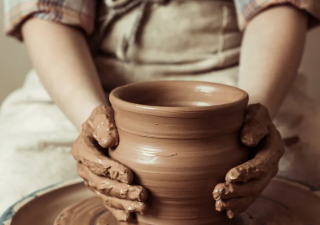Is It Too Late to Try a New Hobby in Your 40s?
Turning 40 doesn't mean the end of life's possibilities. On the contrary, this age brings with it a wealth of life experience and a more mature charm.
Turning 40 doesn't mean the end of life's possibilities. On the contrary, this age brings with it a wealth of life experience and a more mature charm.
Want to learn a new skill? Now's the perfect time. Whether you're interested in photography, painting, or cooking, give it a try.
Want to try a new hobby? 40 can still bring youthful energy. Whether it's yoga, dance, or traveling, you can rediscover the joy of life.
At 40, we can still maintain our beauty and charm. By taking care of our skin and choosing the right outfits, we can express our unique personal style.
40 is a new starting point in life; it's never too late to pursue your dreams, try new things, or maintain your beauty.

Clear Your Interests
Be clear about what you're passionate about. This step is crucial, because only those you truly love can consistently invest time and energy in learning. Observe yourself in your daily life and see which areas you devote the most attention and time to. Do you enjoy crafts or are you deeply interested in art like photography or painting? Or perhaps you want to learn a new language and embark on a new cultural exchange? Whatever it is, as long as you're passionate about it, it's worth trying.
When deciding on your interests, consider practical factors like your physical condition, time availability, and financial resources. Choosing a hobby that's both engaging and suitable for you will make the learning process more enjoyable and smoother.
Evaluate Your Personal Qualities and Set Realistic Goals
After clarifying your interests, the next step is to assess your personal circumstances. This includes your time, energy, and any physical limitations. Many people over 40 face multiple pressures from family and work, so before embarking on a new hobby, make sure you have the time and energy to commit.
It's also crucial to set realistic and achievable goals. Don't set goals that are too high from the start, as this can easily lead to frustration when they become unattainable. Start with simple goals, such as studying a certain number of hours per week or completing a small project. As you progress, gradually adjust your goals to stay motivated and motivated as you progress.

Finding the Right Learning Resources and Methods
After determining your interests and goals, the next step is to find the right learning resources and methods. Learning resources are plentiful these days, from online courses and in-person classes to books and videos. You can choose the learning method that best suits your learning style and needs.
Online courses offer flexibility and convenience, allowing you to study anytime, anywhere. In-person courses provide more systematic learning and practice opportunities, as well as interactive communication with teachers and classmates. Books and videos can serve as supplementary learning materials, helping you gain a deeper understanding of the material.
Maintain Patience and Continuous Learning
Learning new things always takes time and patience. This is especially true for those over 40, who may find it challenging due to declining memory and learning abilities. But remember, learning is an ongoing process; don't expect instant success. Giving yourself ample time and space to adapt and learn new things is crucial.
Maintaining a continuous learning attitude is also crucial. Don't give up on learning because of temporary difficulties or setbacks. Believe in your abilities and potential. Through continuous learning and practice, you will gradually master new skills and knowledge, and experience the sense of accomplishment and joy that learning brings.
